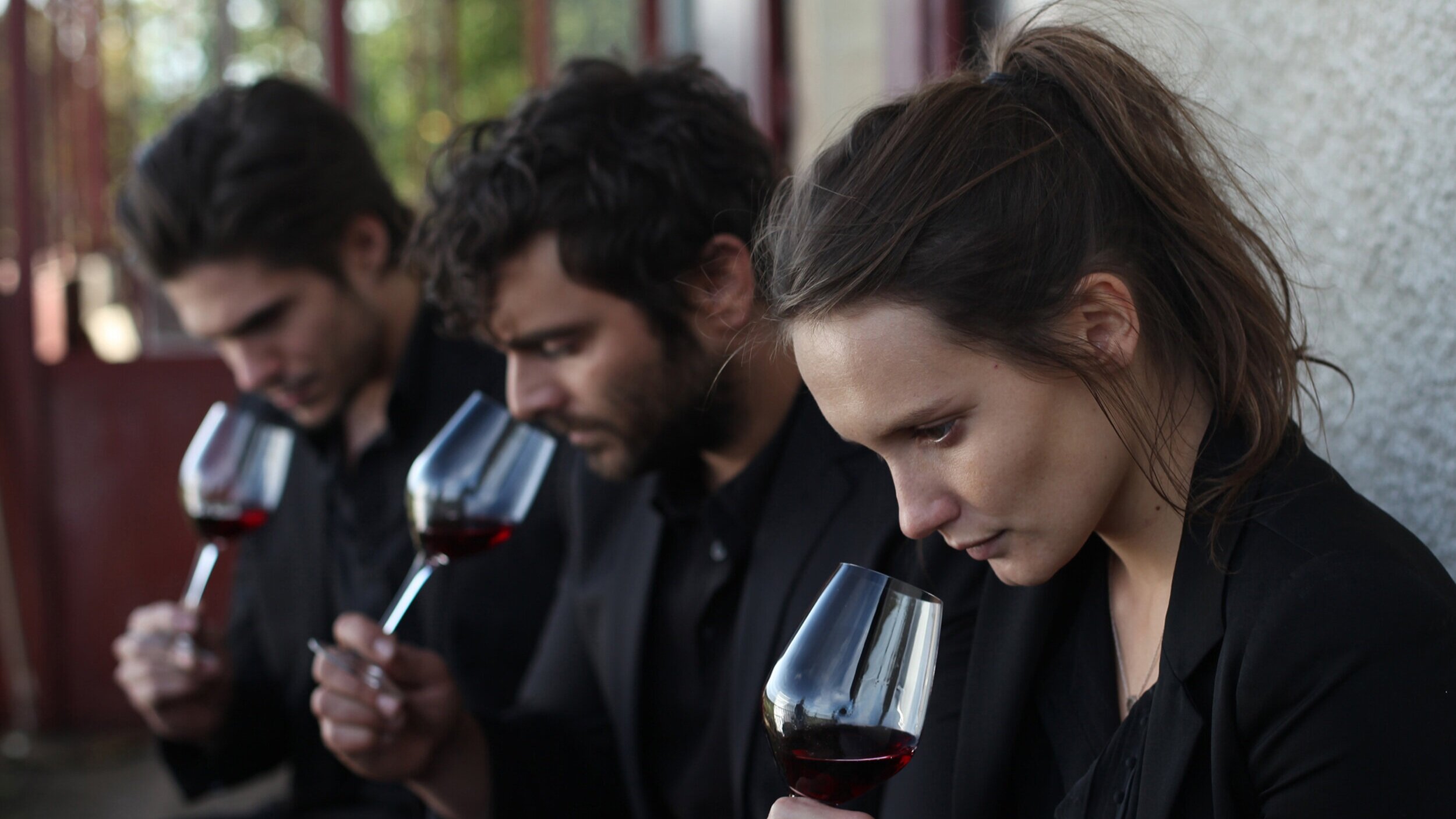Back to Burgundy
A story of siblings that plays out in the vineyards of northern France.
This is the twelfth feature film from the French director Cédric Klapisch who was born in 1961. Given that most of his output has consisted of relatively lightweight films that would be regarded as mainstream but for being subtitled, it is perhaps surprising that so much of his work has been seen in arthouse cinemas in this country. His latest, co-written by Klapisch with Santiago Amigorena as his main collaborator, is undoubtedly in popular mould and needs to be judged on those terms. Back to Burgundy is a family tale that will appeal to many with unsophisticated tastes and, indeed, to start with it gives one the impression that it will be a good example of its genre.
The title imposed for audiences outside France seems entirely appropriate for the story starts when its narrator, Jean (Pio Marmaï), returns from Australia to his French birthplace, the scene of the family vineyards, after a ten-year absence. He is reunited with his sister, Juliette (Ana Girardot) and his married brother, Jérôme (François Civil). However, what has brought him back is the news that his widowed father is dying and Jean's long absence has been a cause of tension in the family. Even so, the central issue becomes the need to pay taxes on the property when the anticipated death does indeed occur. It could be that the money can only be found by selling all, or at the very least part, of the domain which the siblings now own jointly.
This is not the first French film to be located in the vineyards but, shot in colour and 'Scope by Alexis Kavyrchine, it gains from the appeal of its setting and the three leading players are well cast. One of the workers hired to pick the grapes is a girl named Lina: this is a sadly small role for Karidja Touré who was so impressive in Girlhood in 2014, yet it's enough to confirm that she continues to light up the screen when she appears.
But, if Back to Burgundy seems set to work admirably as a family tale exploring both bonds and tensions, it becomes all too clear as the film goes on that the material is being presented in the wrong medium: replete with additional story threads such as Jérôme's rebellion against his oppressive father-in-law, a feuding neighbour and Jean's fears that his marriage to Alicia (María Valverde) is falling apart, the material calls out not for a two hour film but for the format of a television serial. The Jean and Alicia subplot at least contributes to the whole since Jean has to choose between staying in Burgundy after Alicia visits him or going back to Australia with her to their own vineyard there. However, it's here that the writing sinks to its nadir with Jean turning to Alicia to declare: "Love is like wine: it needs time". Even so, many who feel drawn to family chronicles and like to identify with the fortunes of the characters depicted in them will enjoy this film regardless of the fact that its first third plays much better than what follows.
MANSEL STIMPSON
Cast: Pio Marmaï, Ana Girardot, François Civil, Jean-Marc Roulot, María Valverde, Yamée Couture, Jean-Marie Winding, Florence Pernil, Karidja Touré, Tewfik Jallab, Eric Bougnon.
Dir Cédric Klapisch, Pro Cédric Klapisch and Buno Levy, Screenplay Cédric Klapisch and Santiago Amigorena with Jean-Marc Roulot, Ph Alexis Kavyrchine, Pro Des Marie Cheminal, Ed Anne-Sophie Bion, Music Loïc Dury and Christophe Minck, Costumes Anne Schotte.
Ce Qui Me Meut Meut Pictures/StudioCanal/France 2 Cinéma-StudioCanal.
113 mins. France. 2016. Rel: 1 September 2017. Cert. 15.


